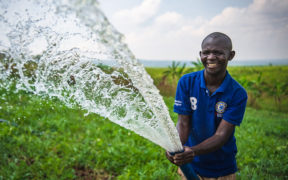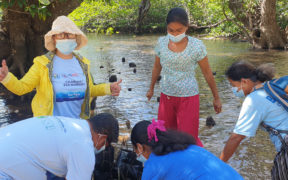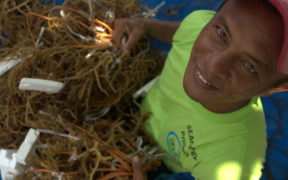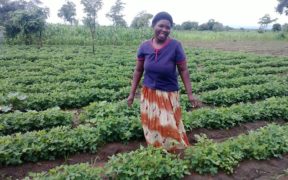Tag:
environment

On Earth Day 2021, Knowledge SUCCESS launched People-Planet Connection, an online platform focused on population, health, environment, and development (PHE/PED) approaches. As I reflect on the growth of this platform at the one-year mark (as we approach the annual celebration of Earth Day), I’m happy to report the addition of blog posts and time-bound dialogues to share and exchange information in a more timely and friendly format. As is the case with the new and the young, we have growth yet to come—to bring greater awareness of the value of this platform to the PHE/PED community and beyond.

The Twin-Bakhaw project advocates for gender equity via sexual and reproductive health services among indigenous populations. Each newborn will have a “twin” mangrove seedling, which the newborn’s family must plant and nurture until it is fully grown. The project exemplifies the importance of family planning and reproductive health interventions in long-term environmental protection measures. This is part 1 of 2.

The Twin-Bakhaw project advocates for gender equity via sexual and reproductive health services among indigenous populations. Each newborn will have a “twin” mangrove seedling, which the newborn’s family must plant and nurture until it is fully grown. The project exemplifies the importance of family planning and reproductive health interventions in long-term environmental protection measures. This is part 2 of 2.

Today, as we mark the celebration of Earth Day, we are pleased to announce the launch of People-Planet Connection—a new learning and collaborative space co-created by and for global development professionals at the intersections between human population, health, and the environment (PHE). Visit the new space at peopleplanetconnect.org.

Whether you're new to PHE or a seasoned professional, finding relevant and reliable resources can be a daunting task. Our quick quiz will help you figure out where to start.













